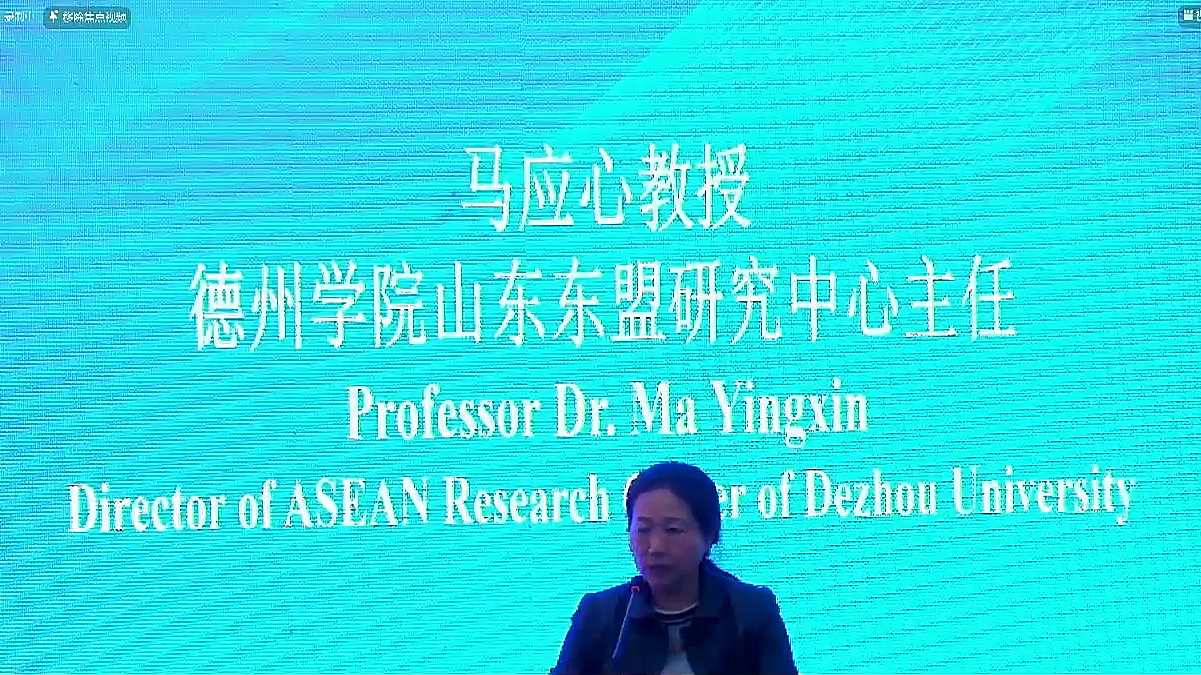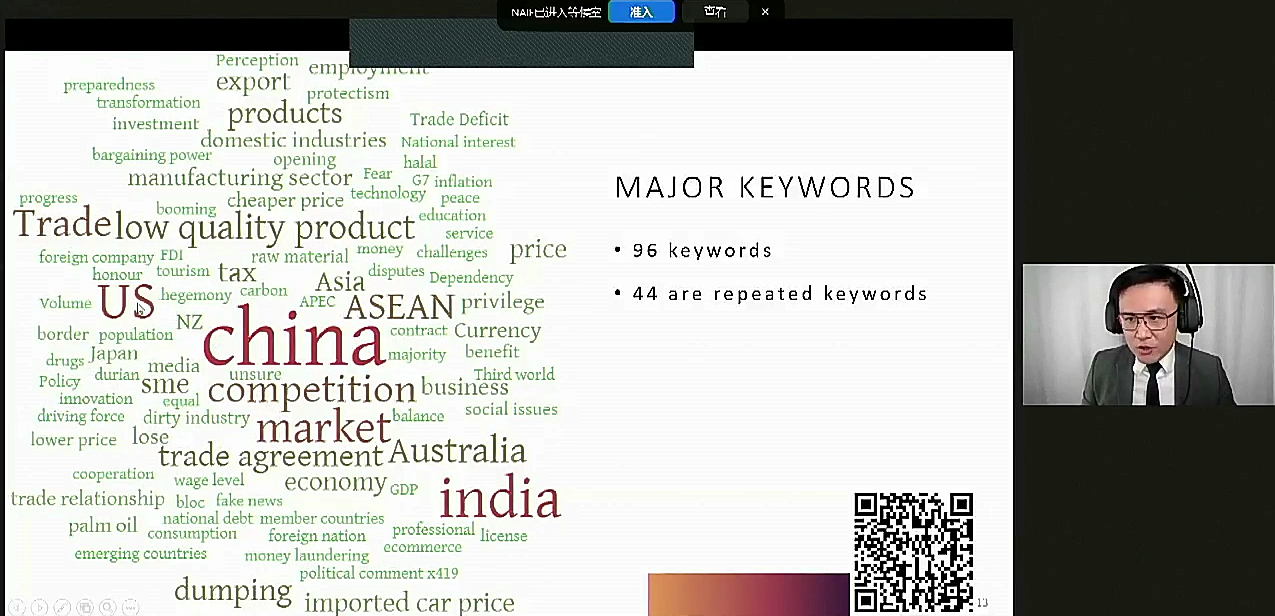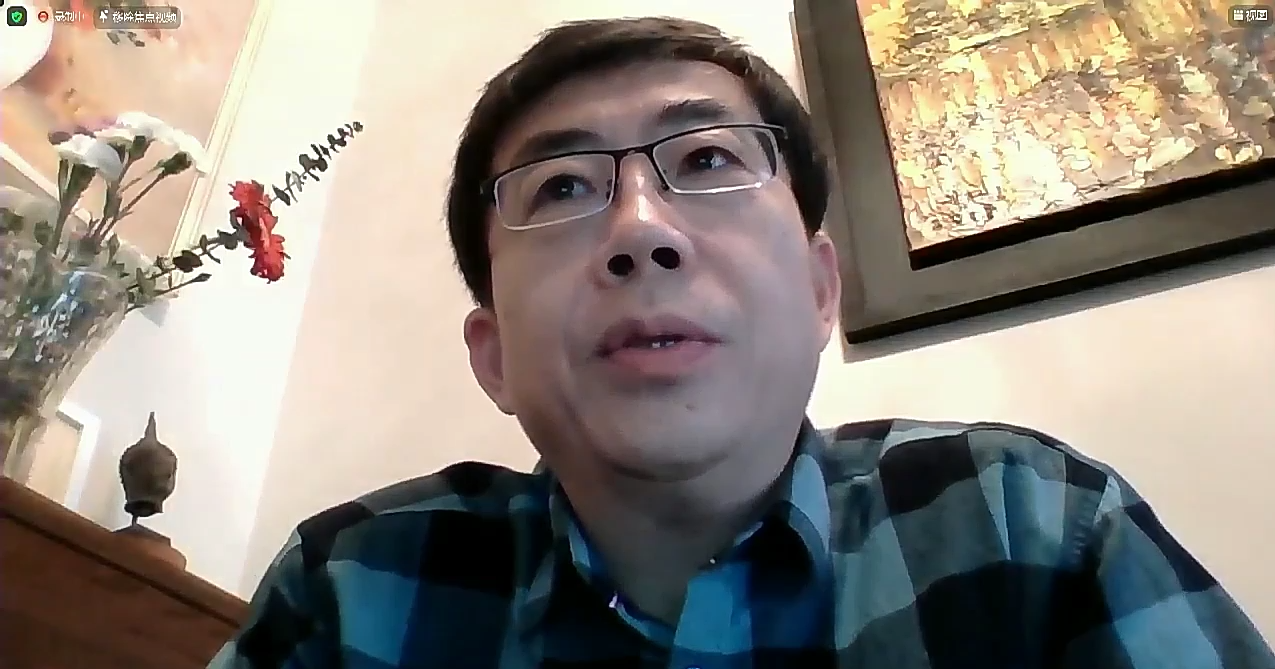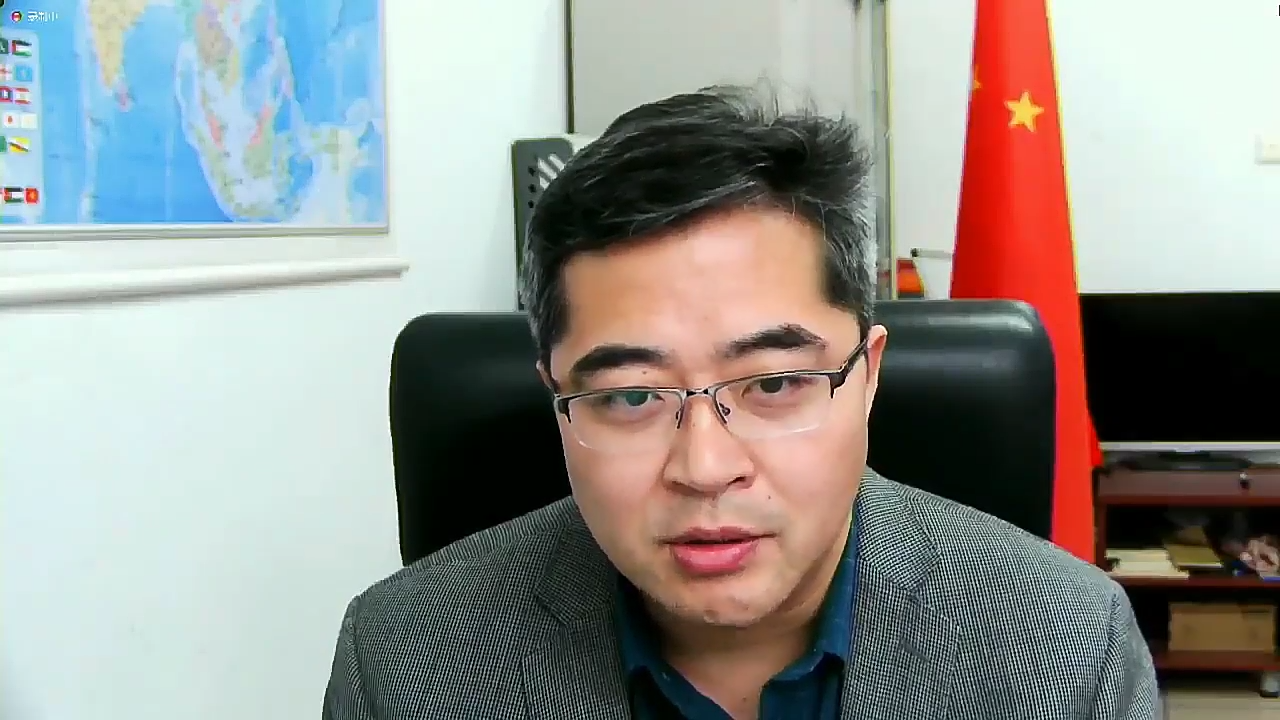
International forum on RCEP in trade digitalisation
The Regional Comprehensive Economic Partnership (RCEP) in Trade Digitalisation Forum (RCEP-TDF) 2021 (2021 年 RCEP 和贸易数字化论坛) was jointly organised by UTAR Belt and Road Strategic Research Centre (BRSRC) and Dezhou University (DZU) Shandong ASEAN Research Center (SDARC) on 12 March 2021 at DZU, China. The seminar was also conducted through ZOOM Meeting and Vzan live streaming platforms.
RCEP-TDF was guided by the Foreign Affairs Office of Shandong Provincial People’s Government (Shandong-FAO) and supported by the Foreign Affairs Office of Dezhou Municipal People’s Government, Dezhou Municipal Science and Technology Bureau, and China Council for the Promotion of International Trade, Dezhou Branch.
The forum aimed to serve as a platform for researchers, entrepreneurs and policymakers from China and Malaysia to discuss the role of RCEP in trade digitalisation. The event saw more than 100 participants from academia, industry, and government agencies of China and Malaysia joining the ZOOM meeting, while Vzan reported more than 2,700 views throughout the forum.
According to Prof Ewe, RCEP is a topic worthy of in-depth discussion and research by academia and industry
In his welcome speech, UTAR President Ir Prof Dr Ewe Hong Tat expressed his gratitude to all the organising parties from China and Malaysia for making the event successful. He said, “The official signing of RCEP means the birth of the world’s largest free-trade zone, which covers the world’s largest population, the largest economic and trade scale, and the most potential for development. The COVID-19 pandemic brought the development of various fields around the world in serious difficulties, and the economic and trade field was the first to bear the brunt. Therefore, RCEP member countries will take this agreement as one of the tools to promote economic recovery. If RCEP can be implemented quickly and effectively, the agreement is expected to become an important catalyst for countries to promote economic recovery under the new normal of post-COVID-19.”
“The RCEP agreement is a topic worthy of in-depth discussion and research by the economic and trade scholars, professionals and industry elites from Malaysia and China, and even other countries because RCEP will play a pivotal role in regional and even global economic and trade development in the future. Today’s forum will be focusing on RCEP and trade digitalisation, and I sincerely hope that this will serve as a platform for researchers, entrepreneurs and policymakers from Malaysia and China to brainstorm and discuss together the opportunities and challenges of RCEP in trade digitalisation,” he added.
Prof Zhao welcoming participants from the industry and academia of both countries
As the host of the forum, DZU President Prof Dr Zhao Shengcun welcomed and thanked the guests and participants from China and Malaysia for their participation. He then shared a brief introduction on DZU’s history and development and the establishment of SDARC. He introduced, “DZU was approved to set up the Shandong ASEAN Research Center in 2019, and it became the first batch of foreign affairs research and development think tank units in Shandong Province. The centre has held numerous international and domestic academic seminars and cultural exchange activities, while a number of its think tank reports also have been approved, adopted and applied by the provincial and municipal foreign affairs offices. DZU will continue to deepen the exchanges and cooperation between Shandong Province, Dezhou City and ASEAN countries; help to build Dezhou as an important node city and key brand for North China to connect with ASEAN; boost the economic and trade exchanges between Shandong and ASEAN countries, and inject new vitality into building a closer China-ASEAN community with a shared future.”
Shandong-FAO Deputy Director-General Sun Yebao revealed, “Under the framework of the ‘Belt and Road’ initiative, China and ASEAN countries have increasingly close exchanges and cooperation, and ASEAN has become China’s largest trading partner since last year. The same goes to Shandong Provincial; ASEAN has also become Shandong’s largest import and export market last year, with an increase of 24.4% and a value of 300.68 billion yuan. Shandong and ASEAN countries, especially Malaysia, have strong industrial complementarities. Both have huge potential for cooperation in the fields of digital economy, service trade, smart cities, and traditional manufacturing transformation and upgrading. Therefore, the signing of RCEP will create new opportunities for the further deepening of trade cooperation with ASEAN, and will also inject new momentum for our province to further expand exchanges with Malaysia.”
“It is hoped that this forum will provide further cooperation opportunities for the digital development of bilateral trade between Shandong and Malaysia and the establishment of cross-border e-commerce platforms to provide opportunities for further cooperation. The Shandong-FAO will give full support to the foreign exchanges and cooperation of the SDARC, and vigorously promote the exchanges and cooperation between Shandong, Malaysia and ASEAN countries in various fields to achieve more fruitful results,” he expounded.

The moderators (from left): Prof Cheng and Prof Ma
There were two sessions in the forum. The speakers from Malaysia and China were invited to share their insights and explore the opportunities and challenges of RCEP in trade digitalisation. The moderators for the sessions were UTAR BRSRC Chairperson-cum-Institute of Management and Leadership Development Director Prof Dr Cheng Ming Yu and DZU SDARC Prof Dr Ma Yingxin.
The speakers from Malaysia were Malaysia Digital Economy Corporation (MDEC) eCommerce Director Song Hock Koon, who presented on “RCEP: Opportunity for Cross Border eCommerce”; Malaysia Cross Border eCommerce Association (MCBECA) National President Chin Chee Seong, who presented on “What are the Keys Benefits and Challenges for Malaysian Businesses especially SMEs?” and UTAR Faculty of Accountancy and Management Dr Goh Hong Lip, who presented on “What’s the public response on RCEP? The Online Sentiment and The World’s largest Free Trade Agreement”.
Song presenting the importance of RCEP to Malaysia eCommerce
Chin introducing the overview of SME in Malaysia, the influence of RCEP on Malaysia’s SMEs and the challenges faced by SMEs in Malaysia


Dr Goh sharing his research finding related to online sentiment on RCEP
Meanwhile, speakers from China were Peking University School of International Studies Prof Dr Zhai Ku, who presented on “Eurasian Value Chain: New Local Coordinated Development Pattern in ‘One Belt and One Road’ Double Loop” and China Foreign Affairs University Institute of Asian Studies Director Dr Guo Yanjun, who presented on “RCEP in the Digital Economy Era: Opportunities and Prospects for Development”.


Prof Zhai (left) and Dr Guo expressing their views
RCEP was initiated by ASEAN in 2012, and after eight years of negotiation and consultation, a new chapter was finally ushered in on 15 November 2020 through a virtual ASEAN Summit hosted by Vietnam. The RCEP member countries include all ten members of ASEAN (Malaysia, Brunei, Cambodia, Indonesia, Laos, Myanmar, Philippines, Singapore, Thailand and Vietnam), China, Japan, South Korea, Australia and New Zealand.
© 2021 UNIVERSITI TUNKU ABDUL RAHMAN DU012(A).
Wholly owned by UTAR Education Foundation Co. No. 578227-M LEGAL STATEMENT TERM OF USAGE PRIVACY NOTICE